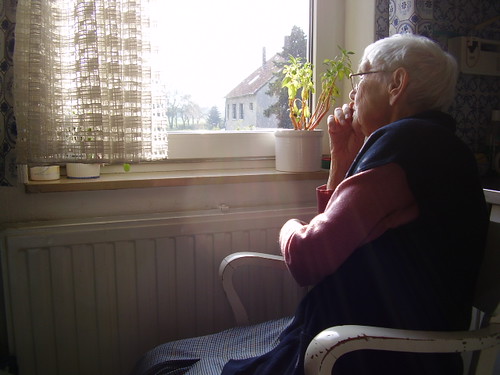As we age, our need for counseling doesn’t change. Indeed, the issues are the only things that seem to change as we get older. Counselors who work in adult care face many unique challenges that differ from average counseling duties.
Growing Elder Population

Image via Flickr by Borya
In 2010, the U.S. Census recorded the largest portion of Americans 65 or older in census history, 13 percent of the total population or 40.3 million seniors. As the Baby Boomer generation continues to age, many predict that by 2050 this group will make up nearly 20 percent of the total population in the country. Additionally, as adults continue to live longer, the population of those 85 and older will grow. In 2010, 5.8 million people were in this age group. However, by 2050 this age group is expected to have nearly 19 million people.
Elder Mistreatment
One challenge that counselors who work in adult care have to deal with is elder mistreatment. This includes caregivers causing harm to elders, failing to meet their basic needs, or failing to protect an elder from harm. Many times, elderly patients are either reluctant or unable to report the abuse. Therefore, it is often up to other professionals, such as counselors, to know the signs of elder abuse and understand the steps needed to confront the problem.
Lack of Mobility
Another challenge unique to counselors working in adult care is the lack of mobility their clients face. At a time when this population needs counseling the most, they’re often unable to travel to a counselor’s office because of health or physical mobility issues. As a result, many counselors will have to travel to their clients so they can meet.
Dealing with Complicated Grief
As our population ages, counselors working with older adults will encounter unique cases. One example is Jenny, who is 75 years old and has lost friends, her husband, and her son to cancer. Not only do counselors have to help her deal with the grief of losing so many loved ones, she is also terminally ill with cancer, so they need to help her accept the diagnosis. Over the course of three months, counselors worked with Jenny on dealing with her grief and creating memories to leave behind for her grandchildren.
Issues Unique to Adults
Counselors who are interested in adult care find that they often need special training to help with issues unique to the age group. For example, many adults deal with anxiety when they approach retirement. For many, their profession has become their identity, and they worry that once they retire they will lose that part of themselves. The financial constraints of retirement can also cause stress and anxiety for older adults. As a result, many counselors are encouraged to either learn more about finances or collaborate with a financial expert for help.
As the population continues to age, counselors are dealing with unique challenges in their field. From mobility issues to stressors that are specific to the elderly, these counselors are learning new strategies to continue to help their patients.
